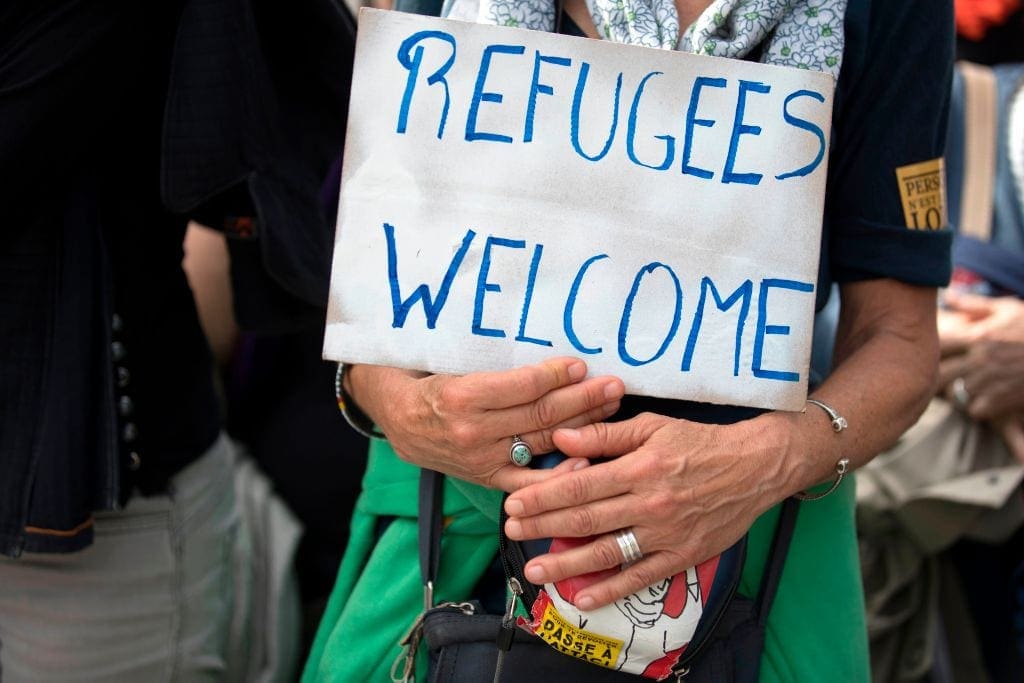The stunt, organized by Amnesty International, is intended to draw attention to the suffering of refugees trapped on the Greek Islands by the EU-Turkey deal, which marks its third anniversary today.
“Three years after the EU-Turkey deal was implemented, it is vital that this call for humanity is seen not just across Athens, but across the whole of Europe,” said Fotis Filippou, Campaigns Director for Europe at Amnesty International.
“The situation facing thousands of migrants and refugees on the islands is a scar on the conscience of Europe. Anyone looking up at the Acropolis can see thousands of years of civilisation. Anyone who looking towards the refugee camps on the Greek islands will see that our leaders have learnt nothing.
“It is time for our leaders to put humanity first. They must end the tragedy thousands of people are facing as a result of the EU-Turkey deal and act now to ensure that those trapped in abject misery on the islands are finally moved to safety on the mainland and
Background
The huge “Humanity First, Refugees Welcome” message was projected on to the side of the Acropolis.
The EU-Turkey deal is a statement of cooperation between EU states and the Turkish government aimed at returning people crossing to the Greek Islands back to Turkey on the premise that Turkey is safe for them. This included asylum seekers and vulnerable migrants. What ensued in practice is a containment policy, trapping people in the Greek hotspots for extended periods of time.
There are currently more than 15,000 people on the Greek island ‘hotspots’, more than a half of whom are women and children. The majority are staying in overcrowded camps, many sleeping in unsuitable tents and containers, facing risks to their safety and security. The camp on the island of Samos alone houses more than 4,000 people, a number exceeding its capacity by more than five times.
On paper, the arrangement was to be accompanied by a “1:1 scheme”: a commitment to resettle one Syrian to EU Member States for every Syrian being returned from Greece to Turkey. Figures show, however, that only over 8,000 resettlements of Syrians have been carried out in 2018, while around 3.6 million remain in Turkey. In parallel, out of 32,494 total sea arrivals to Greece in 2018, returns to Turkey amounted to only 322.

